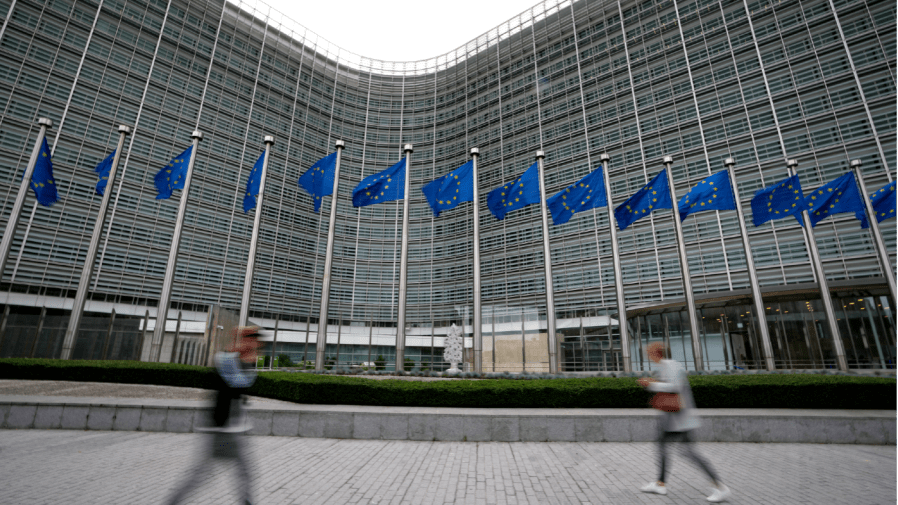The European Union is getting ready to retaliate for tariffs under Trump 2.0., with Brussels already convening “Trump task force” last month to look into ways to strike back against new U.S. duties on European goods.
Fair enough, but Brussels should also worry about its own provocative policies, one of which is the European Union Deforestation Regulation. While Trump’s instinct won’t be to greenlight this for World Trade Organization litigation, he should.
What is the European Union Deforestation Regulation?
It’s a regulation aimed at keeping products that contribute to deforestation from being imported to, sold within, or exported from the 27-country bloc. It covers trade in cattle, cocoa, coffee, palm, rubber, soya and wood, and requires firms to submit “due diligence” statements on the risks they pose with respect to deforestation across their supply chains.
Product traceability is slated to be monitored by national authorities using geolocation data at every step. There are also provisions to address compliance on a country basis, which will impact the amount of detail required in firms’ due diligence reports.
The EU says it will incentivize sustainable practices and help fight climate change. Many of the EU’s trade partners see things differently. They worry the costs of compliance will hurt their exporters.
These costs are expected to range from 0.29 percent to 4.3 percent of the value of imports but could be far greater if upstream suppliers can’t afford to implement the requisite auditing systems.
This past June, the U.S. and 16 other countries raised what are called specific trade concerns at the WTO’s Committee on Technical Trade Barriers. Specific trade concerns are often a precursor to litigation.
The U.S. said that the EU was “woefully unprepared” to roll out the European Union Deforestation Regulation and that doing so prematurely would “have substantial consequences for global supply chains and food security.”
Canada likewise pointed out uncertainties surrounding the regulation’s implementation and enforcement, cast doubt on the science behind it and hinted there are less trade-restrictive alternatives to get the job done.
India pleaded for the EU “to address the concerns raised by a wide range of WTO Members.”
Frustration with the regulation has also boiled over at the WTO’s Council for Trade in Goods. In July, the U.S. and 17 other countries complained about the EU’s unilateral approach.
The U.S. made a plea for “two-way consultations” and more stakeholder engagement. Brazil insisted the European Union Deforestation Regulation “focuses solely on trade restrictions” and argued that it supported “the broad and growing number of countries calling for this measure to be revised or at least postponed to avoid irreparable damage to producers.”
Given this pushback, Brussels decided last month to postpone implementing the regulation until December 2025 for large companies and June 2026 for small ones. This will put it squarely on Trump’s watch. He’ll have to deal with it because U.S. exports of soya will hang in the balance. But how?
Using tariffs would elicit retaliation and increase trade policy uncertainty for countries that have sided with the U.S. against the European Union Deforestation Regulation.
Trump could push for a bilateral deal to exempt some U.S. exports, but the EU has shown no interest in violating WTO rules to carve out special deals under its carbon border adjustment mechanism, for example.
This leaves WTO dispute settlement. Crazy talk? Not really.
Recall that in Trump’s first term, his administration filed WTO cases against Canada, China, India, Mexico and Turkey. The optics of going on the offense while vowing non-compliance on the defense aren’t great, but positive results on the European Union Deforestation Regulation, including by reaching a negotiated solution in consultations, may persuade Trump to give multilateralism a closer look. U.S. agricultural exporters desperately need the WTO to be allowed to work.
The U.S. could get a third country, like India, to file against the regulation. But this wouldn’t yield the political dividends at home he’d otherwise get from U.S. soya producers still waiting to be made “whole” after Trump’s withdrawal from the Trans-Pacific Partnership and trade war with China.
It will be key to start a substantive dialogue on the European Union Deforestation Regulation quickly.
In March the U.S.-EU cease-fire on steel and aluminum tariffs expires, handing Trump an early opportunity to relaunch a tariff war he started in his first term. Brussels no doubt recalls that, back in 2018, Trump told Fox News “The European Union is possibly as bad as China, just smaller.” European Union Deforestation Regulation will not improve Trump’s opinion.
The EU was caught off-guard by the salvo of tariffs under Trump 1.0 and is prepping for new ones under Trump 2.0. To this end, it has armed itself with a unilateral trade measure it didn’t have in 2018.
But this should not blind Brussels to the reality that regulations like the European Union Deforestation Regulation are as unilateral and protectionist as the tariffs it fears might soon upend transatlantic trade.
Marc L. Busch is the Karl F. Landegger Professor of International Business Diplomacy at the Walsh School of Foreign Service, Georgetown University.
Copyright 2024 Nexstar Media, Inc. All rights reserved. This material may not be published, broadcast, rewritten, or redistributed.
For the latest news, weather, sports, and streaming video, head to The Hill.
Source link : http://www.bing.com/news/apiclick.aspx?ref=FexRss&aid=&tid=67351a6520b14c288f6d8afef362b6db&url=https%3A%2F%2Fwww.yahoo.com%2Fnews%2Fopinion-why-trump-might-challenge-173000853.html&c=4069434436764895346&mkt=de-de
Author :
Publish date : 2024-11-13 09:30:00
Copyright for syndicated content belongs to the linked Source.
